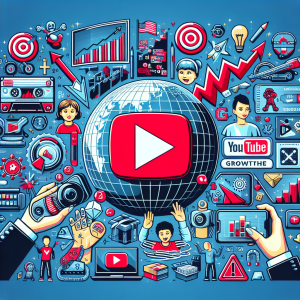Mastering Your Marketing Strategy with Effective Media Planning
In today’s dynamic marketplace, a well-defined marketing strategy is non-negotiable for success. Media planning, a cornerstone of this strategy, provides a roadmap for achieving your marketing campaign planning objectives. But what exactly is it, and why is it so crucial for your business?
What is Media Planning?
Media planning is the meticulous process of identifying and selecting the optimal advertising channels to reach your target audience and achieve your marketing ROI goals. It involves a deep understanding of your audience’s media consumption habits, a keen analysis of various media platforms, and strategic media buying decisions to maximize your media budget.
Effective media planning considers a wide array of factors, including:
- Target Audience: Who are you trying to reach?
- Marketing Objectives: What are your campaign goals? (e.g., brand awareness, lead generation, sales conversions)
- Media Budget: How much funding is allocated for your campaigns?
- Media Mix: Which combination of paid media, earned media, and owned media will yield the best results?
The Components of a Successful Media Plan
A comprehensive media plan outlines a strategic framework for your marketing campaigns, encompassing the following elements:
- Executive Summary: A concise overview of your marketing goals, target audience, and media strategy.
- Target Audience Analysis: A detailed profile of your ideal customer, including demographics, psychographics, and media consumption habits.
- Marketing Objectives: Clearly defined and measurable goals for your campaigns, aligned with your overall business objectives.
- Media Strategy: A well-defined plan outlining the selected advertising channels, media schedule, and rationale for each choice.
- Media Budget Allocation: A breakdown of your media spend across different channels, ensuring optimal resource utilization.
- Media Calendar: A visual timeline depicting the scheduling and frequency of your media placements.
- Campaign Measurement & Evaluation: Key performance indicators (KPIs) to track campaign performance, measure marketing ROI, and inform future media planning decisions.
The Importance of Media Planning in a Digital World
While traditional media planning focused on channels like print, radio, and television, digital media planning has opened up a world of new possibilities. With the rise of the internet and mobile devices, digital marketing offers a plethora of opportunities to connect with your audience.
Some popular digital media channels include:
- Search Engine Optimization (SEO): Improving your website’s visibility in organic search results.
- Pay-Per-Click (PPC): Driving targeted traffic to your website through paid search ads.
- Social Media Marketing: Engaging with your audience and building relationships on social platforms.
- Content Marketing: Creating and sharing valuable content to attract and engage your target market.
- Display Advertising: Reaching your audience with visually appealing ads on relevant websites.
- Influencer Marketing: Partnering with influential individuals in your industry to reach a wider audience.
- Affiliate Marketing: Collaborating with other businesses to promote your products or services.
Optimizing Your Media Planning Process
To maximize the effectiveness of your media planning efforts, consider these valuable tips:
- Leverage Media Planning Tools and Resources: Utilize specialized software and online platforms to streamline your planning and media buying process.
- Stay Updated on Media Trends: The media landscape is constantly evolving. Stay informed about new platforms, technologies, and audience behaviors.
- Test, Measure, and Refine: Continuously analyze your campaign data, track key metrics, and adjust your strategies based on performance insights.
By embracing a data-driven approach and remaining adaptable, you can create media plans that deliver exceptional results and propel your business towards success.







